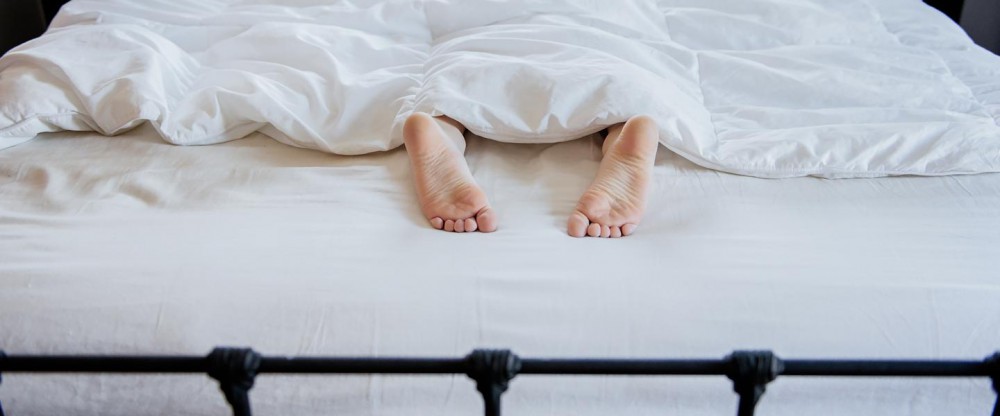Sleep and CPAP Adherence
My doctor diagnosed me with sleep apnea and has recommended that I begin CPAP treatment. What kind of adjustment process should I expect?
The adjustment process for each patient starting CPAP therapy for sleep apnea is unique, just as each patient’s experience with sleep apnea is a unique combination of symptoms and consequences of the disorder. Most patients will require a period of adjusting to the presence of the CPAP mask on the face and the feel of the air pressure delivered by the CPAP unit. The time of this adjustment is variable – anywhere from a few days to a few weeks. I have had some patients take months to adjust to CPAP. The most important recommendation for any patient starting CPAP therapy is to not give up. Persistence really does pay off. Ask your sleep medicine clinic or laboratory for help if you have persistent difficulties.
Are there any side effects I will experience from using a CPAP machine?
Most patients will encounter side-effects from the CPAP machine at some point in their experience with it. The most common CPAP side-effects are mask or pressure related. Some patients will experience claustrophobia to the CPAP mask. Some patients will develop nasal congestion while others may experience rhinitis or a runny nose. While CPAP side-effects are a nuisance, serious side-effects are very uncommon. Furthermore, research has shown that CPAP side-effects are rarely the reason patients stop using CPAP. Simple things may really help with minimizing side-effects of CPAP: Here are a few tips.
* Make sure the mask you have is fitted appropriately. A mask that is too large or too small will be uncomfortable.
* Nasal symptoms frequently respond to heated humidification of the CPAP air. Most CPAP machines come with heated humidifiers but many patients do not use them.
* Do not overtighten the mask. This common mistake leads to mask discomfort and damage to the skin. If uncomfortable air leaks occur, think about changing to a different mask.
How long after I begin CPAP treatment will I begin to note a difference in my fatigue, energy levels and sleepiness?
Fatigue and sleepiness are common symptoms of OSA. Elimination of these symptoms usually begins as soon as CPAP is started. Studies have suggested that the maximum effect is achieved in about 2 weeks. For unclear reasons, some patients have persistent sleepiness despite good adherence to CPAP. Stimulant medications may be appropriate for some of these patients. Consult with a sleep medicine expert if you suspect this. However, remember that CPAP will not make up for insufficient sleep.
I've had trouble adjusting to using my CPAP machine, even though it's been a few months now. What tips can you recommend to help me stick with this treatment?
If you have been using CPAP for several months and are still struggling with becoming comfortable with it, do not feel discouraged. I see many such patients. You are not alone. Here are several suggestions to consider:
* Make sure the mask is comfortable and the humidifier is working;
* Treat nasal congestion with heated humidification or nasal medications (consult your doctor about this);
* Emphasize the positives you have noted about your sleep since starting CPAP; patients who struggle with therapy often lose track of some of the good things they have noted since starting this therapy;
* If mask claustrophobia is interfering with your becoming comfortable with CPAP, try desensitization training. The goal of this is to get you so accustomed to the CPAP mask and pressure, that you forget it’s on your face. Start with short periods of time while awake and doing something that is distracting – such as watching television. Gradually increase the time you wear CPAP. Continue using CPAP while sleeping while you desensitize to it while awake. Start with 10 minutes and build up from there.
* Set goals for yourself. Just as you would train for an athletic event, train yourself to use CPAP. Start with 2 hours per night. Add another 30 minutes per week until you are sleeping with it all night long.
Finally, if these tips do not help, consult your physician. He or she may have other ideas to consider.
Charles W. Atwood, Jr., MD is a pulmonary and sleep medicine physician based in Pittsburgh, PA. He is the director of the sleep disorders program for the VA Pittsburgh Healthcare System and the associate director of the University of Pittsburgh Medical Center's Sleep Medicine Center. He is an associate professor of medicine at the University of Pittsburgh School of Medicine.
The right head support can greatly improve how comfortable you feel in bed.Learn more about how these medical devices can make a big difference in nighttime comfort for people with breathing issues.Sleep Apnea is a sleep disorder in which breathing is briefly and repeatedly interrupted during sleep. Learn how to cope...A frequent need to get up and go to the bathroom to urinate at night is called nocturia. It differs...Nearly one-quarter of all workers have shifts that are not during the daytime, and more than two-thirds of these workers...The Electronics and Sleep infographic highlights how technology affects the modern family and how parents can help design a sleep...Orexin receptor antagonists: A new class of sleeping pill Find out more about orexin, and a new type of sleep...You don't have to struggle with sleepless nights. Help is available! There are treatment options for insomnia, ranging from behavioral...Great news: more than three-fourths (76%) of those surveyed say that they had a good night’s sleep at least a...How you feel about the sleep you get every night is known as sleep satisfaction. Unlike sleep quantity (which objectively...

Source: Internet





